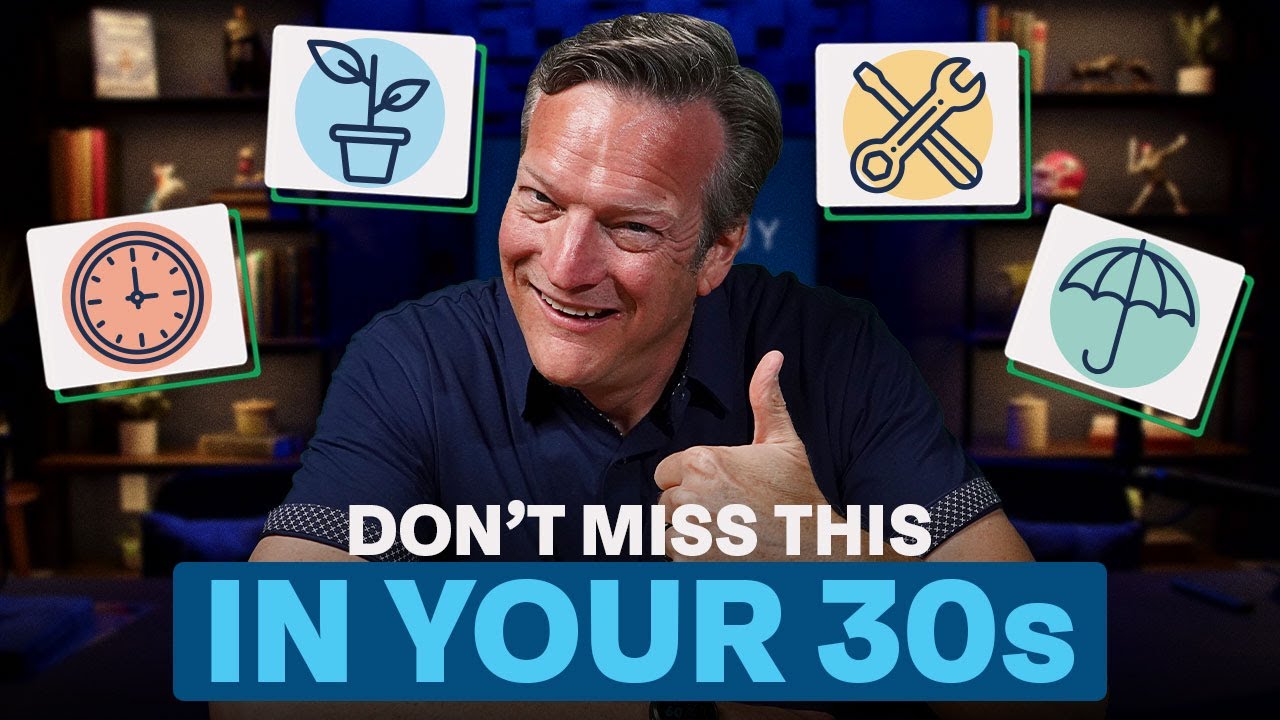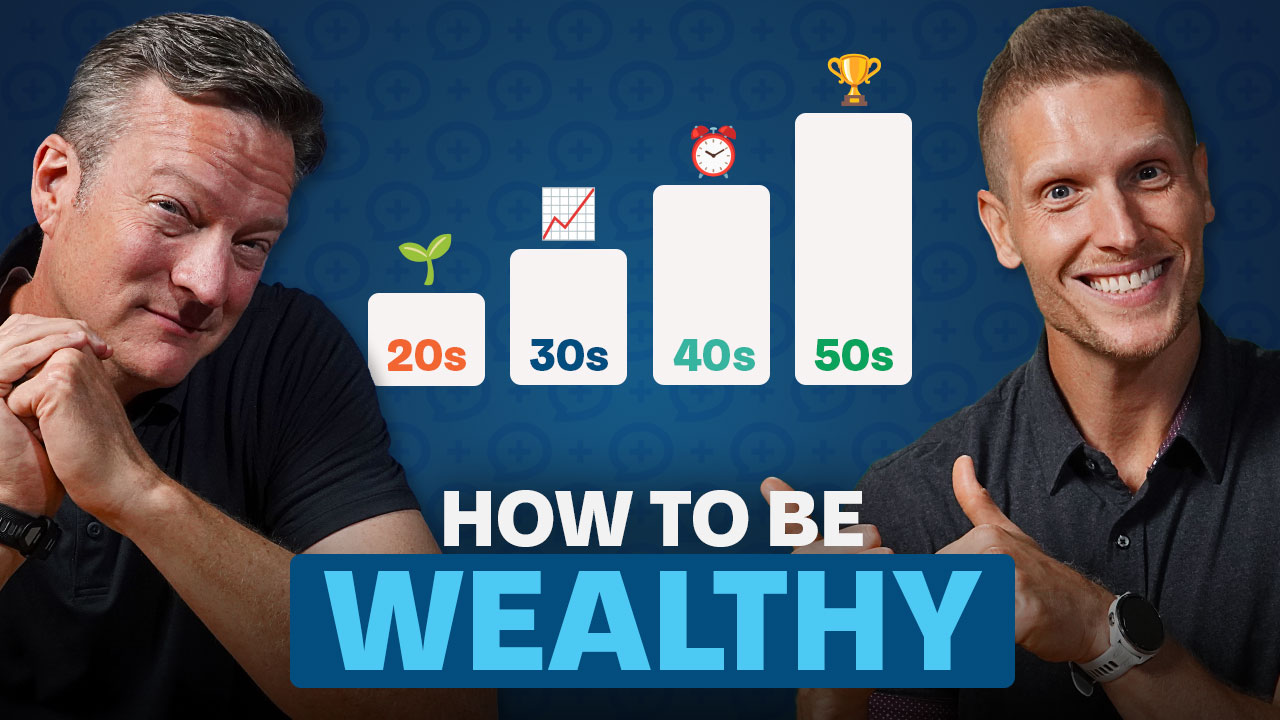Parker asks, "What is the Money Guy advice for starting your own business? I'm 23 years old, married with a baby, on step 5 of
Financial Order of Operations. I work a W-2 but don't see fulfillment in my career for the next 40 years. What would your advice be to him if he's thinking about entrepreneurship or what might be next for him?"
Brian, you know, I'm gonna let you start this one if you're okay because, like, you've lived through this, right? Like you said, you had this experience and you went through and you're like, you know what, I got to change something. I gotta change something in my life, and maybe Parker's at that place. I'd love to hear a little bit about your experience, what went into that, and then I'll throw some color in there if you leave anything on the bone.
Here's what I think is interesting. I didn't initially think I was going to be an entrepreneur, even though the artists now look back on, there were some things in my life that happened that were definitely part of the Invisible Hand process. My father losing his job when I was in the seventh, eighth grade, after a company he'd been with for over 20 plus years, that had a shape on me. And then the clarity I got from trauma, meaning my dad passed away when I was in my mid-20s, and I got this blinding clarity from him leaving the Earth so early. And the fact that I realized very quickly I didn't like how my life was going and the fact that, and that sounds like Parker, you're having a little bit of this. And the fact that I realized I was never going to be at, you know, my kids' stuff like my dad was because I was just going to be doing this corporate life, and that just didn't seem, in that moment of clarity, like the path that I wanted to go. Nothing wrong with my employees, I worked with great companies, but it just wasn't the way I wanted to go about doing it.
I started working on a plan, Parker. This is the "do not let the passion, do not let the excitement get you to such a frenzy that you skip all the steps," because there are some key steps. First thing, what is going to be your viable business? Don't think just because you want to be an entrepreneur, a lot of people want to be an entrepreneur, unfortunately not many get to stay in that entrepreneur status because there's a high failure rate. So you first gotta figure out what is the thing that people gladly come to you to give you money for the service or the product, and then actually a year from now, two years, three years from now, they might come back for more. They might actually need more, you know, and it's, you have to be really good because sales can sell a product one time, but something has to be so good, it has to be so talented, it has to be something that actually gives it staying power. Figure out what that is first. So that's the first thing, you know, because we all aspire to, because you're thinking all these great things.
The second thing is, go ahead and start creating the plan. The first part of this is liquidity. Cash is going to be the lifeblood for your success because it's going to take three years no matter what you want to do. So if you can't figure out, first, so this is in two fronts, you gotta figure out how to get your living expenses down as small as possible, live a minimalist life to figure out what your family can live off of as small as possible. At the same time, you're living off the minimalist life, getting your footprint, your expense footprint, down as small as possible. You're trying to pack in as much money into the savings account as possible so you actually get to that three-year point. And then, that leads to the third thing: the 3D plan. You know what the 3D plan is? I've talked about it on a bunch of shows. This is where you create essentially your own life plan, business plan.
For the three ways that this scenario could go, let's start with the optimistic dream plan. This is when you're going to be so wealthy, so successful. Make sure you do that. That one's fun, motivating, and energizing. Then, next, I want you to do the down-to-earth plan. This is what you think will happen. Let's face some obstacles, have some struggles. Maybe getting clients or coming up with the perfect product won't be easy. So, intentionally introduce some obstacles into the plan, but believe it will work out because this is what you think is going to happen. Then, include the doo-doo plan. We call it that because, man, things could go terribly wrong. It stinks, it smells, it's horrible for you and your family. But it's better to address it in theory or in planning, rather than in reality. So, you can figure out if this complete disaster of a plan can survive. Addressing it in advance through thorough homework will increase your chances of success, Parker, and help you build the life you want.
Here's a hot take, everyone. Get buckled up, get ready. You may not have to go the entrepreneurship route. You may not have to go out on your own, hang a shingle, and do it by yourself. I'd argue, Parker, at 23, you're still young and you have a family that depends on you. Going from your current income to zero is scary. It's an uncomfortable proposition for sure. Could there be other opportunities where you could pursue an entrepreneurial type of opportunity? Maybe there's a small business or some vocational option where you can make a difference. You can bring your youthful, vibrant, lively energy to an existing venture and help make it better, take it to the next level, and move it forward. This way, you still get the benefits of entrepreneurship if it turns out that way, but with a safety net that is necessary for a young person with a family. It doesn't have to be the idea of going out on your own. There might be opportunities where you can plug in and still do what you want, your way, without being completely alone. It's worth thinking about, investigating, and exploring. You may be amazed at the opportunities you find when you start looking in that direction.
Man, you did that in a very good Seinfeld-like way. I feel like going... because you actually encapsulated both of us. Yeah, and you brought it full circle. Really cool because that is true. You did create an entrepreneurial opportunity. I mean, I think I shared when Bo started working for me was the year Netflix started streaming. A few months later, when he looked at my growth goals, he asked how many clients I picked up last year. Bo has been the fire, so I want to give him credit. He did create an entrepreneurial opportunity, and you guys are the beneficiaries. I'm the beneficiary, Bo's the beneficiary, the whole team, the 30 employees are beneficiaries. So, Parker, it doesn't have to be only one way. Here's one other thing: because I know society has made it where entrepreneurs, because it's the buck wild path, it's the sexy path, it's the cool path, make sure and, this is something I alluded to. You've got to put in the 10,000 hours somewhere, or develop a unique skill set that sets you apart. It's something that will sell itself, something so valuable that people will keep coming back for it. I feel like sometimes the passion or desire to have something makes people go out there and crave it without putting in the effort, without doing the hard work to figure out the actual value proposition. As Ronnie Coleman said, everybody wants to be big, but nobody wants to lift the really heavy weight. Want to know what to do with your next dollar? You need this free download:
the Financial Order of Operations. It’s our nine tried-and-true steps that will help you secure your financial future.













